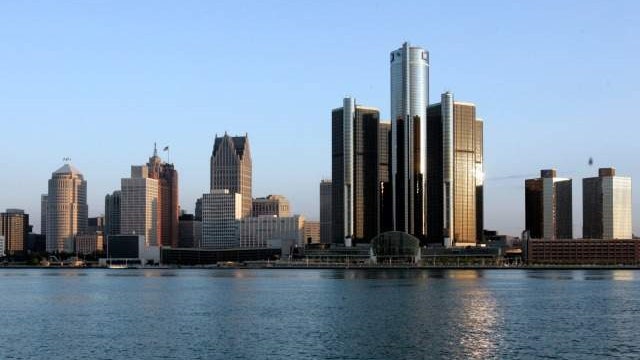Detroit’s Bankruptcy: Pensions, Taxes and City Service Implications
Detroit made history Thursday as the largest American city in history to ever file for Chapter 9 bankruptcy protection. The once vibrant city rooted in auto manufacturing and music finally fell victim to its dire financial situation, with between $18 billion and $20 billion in debt.
While city emergency manager Kevyn Orr says it will be “business as usual” in Detroit, experts say residents may be impacted in three major areas—pensions, city services and tax rates.
The Pension Problem
The city has yet to confirm how pensions will be impacted, although there have been suggestions that pensions will be reduced, says Bob Tomarelli, IHS Global Insights economist. The wildcard in the situation is the fact that the Michigan state constitution has a provision which some union leaders say bars pension cuts.
The provision says “the accrued financial benefits of each pension plan and retirement system in the state and its political subdivisions shall be a contractual obligation which shall not be diminished or impaired thereby.”
“The next question here is what does the judge do? The provision seems pretty clear cut, but a judge can rule that they can cut pensions,” Tomarelli says.
There are an estimated 30,000 retirees who are currently receiving pensions, he says, and an estimated $9.2 billion in pension debts.
Pensions potentially have some major changes ahead, says Alison Fraser, Heritage Foundation senior fellow and director of government finance programs.
“They are already in lawsuits with the pension programs themselves,” Fraser says of the city. “It’s unclear what the legal questions are when you go into bankruptcy. There is some possibility pensions will be redone in some way, and it will be very difficult for those who area already retired on those pensions.”
Overall, Fraser believes bankruptcy was the right way to go, as the city was irresponsible with its finances and the process will allow Detroit to restructure its debt.
City Service Cuts
Orr says the filing is the “first step toward restoring the city” and that it will be business as usual in Detroit.
“He says the lights will stay on, but it depends on what haircut the creditors will take on secured bonds, and knowing if and how much pension payments will be cut,” Tomarelli says. “They then decide how much money will be cut and saved on public services.”
Detroit has lost a massive number of residents over the past half century, and now is home to around 700,000 citizens, post-auto bailout and Great Recession. Tomarelli says if the city cuts public services, it would likely be less appealing to potential residents.
“People are still leaving Detroit at a faster rate than they are Michigan,” he says. “If there is a great reduction in services, it may be a less attractive city to live in.”
Tax Hikes on the Way?
Detroit’s current tax rates are 2.4% for residents, 1.2% for non-residents and 2% for corporations and Fraser says a hike would be the wrong way to go post-bankruptcy.
“Detroit already has high taxes,” she says. “It’s difficult for cities to levy taxes, but they do.”
If taxes are hiked on the heels of cuts to city services and pensions, she says it’s a recipe for disaster.
“They shouldn’t try to squeeze every last dollar out of city businesses and residents—that is really the key,” she says. “Will residents flee, or will it remain stable?”
Detroit instead should look at its own problems and tackle them, including investigating its regulatory culture to see if it is encouraging new businesses to launch in the city.
“This should be a wake-up call to our federal government regarding pensions and entitlement programs,” Fraser says.




















